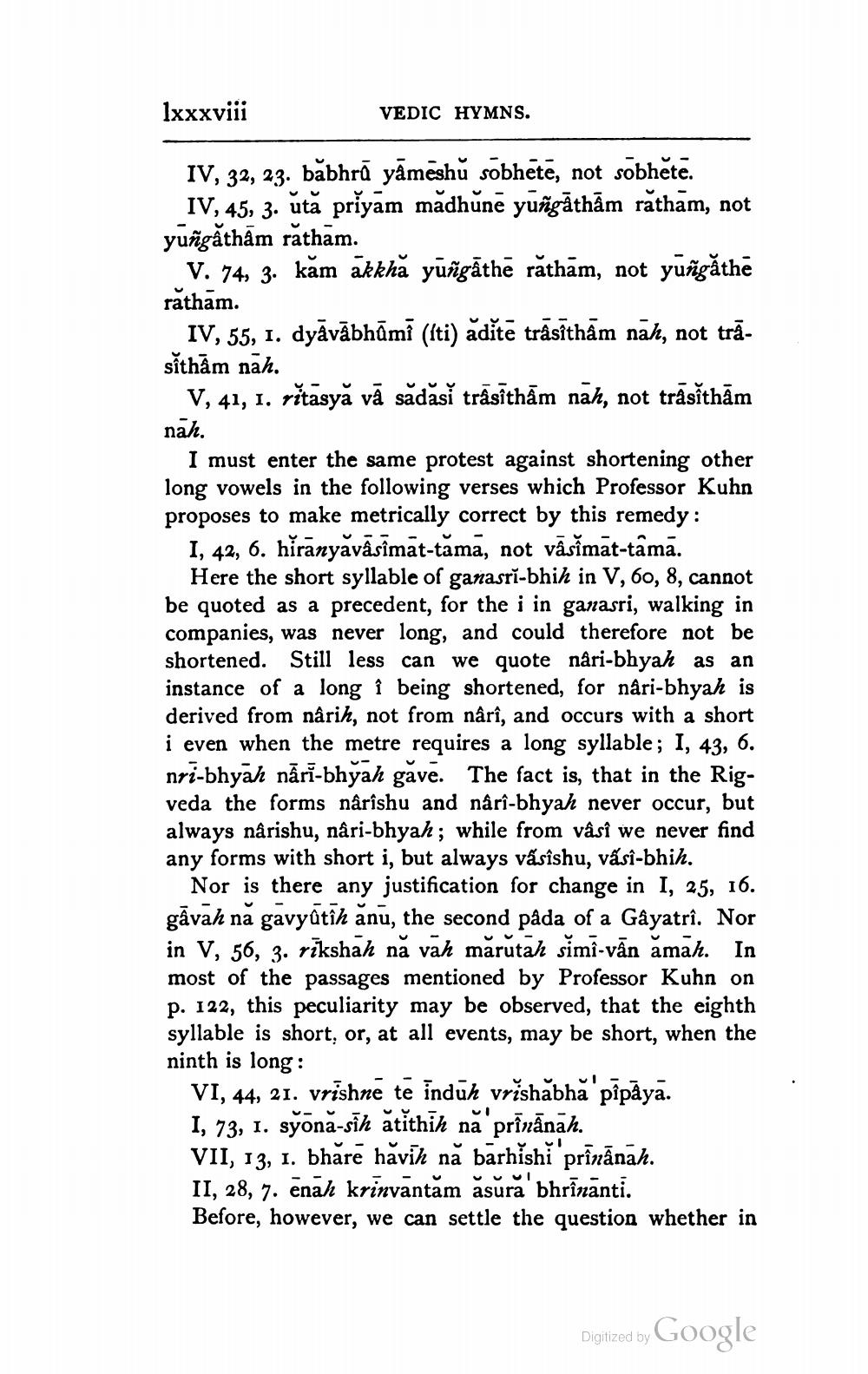________________
lxxxviii
VEDIC HYMNS. IV, 32, 23. băbhrā yāmeshủ sobhete, not sobhète.
IV, 45, 3. ută priyam mădhūne yūñgāthâm răthām, not yuñgăthām ratham.
V. 74, 3. kăm äkkhă yūñgāthề răthām, not yuñgăthe rathām.
IV, 55, 1. dyāvābhāmi (Iti) adíte trāsíthâm nāh, not trāsĩthâm näh.
V, 41, 1. ritasyā vā sădăsi trāsíthām nāh, not trāsỉthām nah.
I must enter the same protest against shortening other long vowels in the following verses which Professor Kuhn proposes to make metrically correct by this remedy:
I, 42, 6. hiranyavāsímat-tămā, not vāsímāt-tâmā.
Here the short syllable of ganasri-bhih in V, 60, 8, cannot be quoted as a precedent, for the i in ganasri, walking in companies, was never long, and could therefore not be shortened. Still less can we quote nåri-bhyah as an instance of a long î being shortened, for nåri-bhyah is derived from nârih, not from nârî, and occurs with a short i even when the metre requires a long syllable; I, 43, 6. nri-bhyah nārī-bhyah gave. The fact is, that in the Rigveda the forms nârîshu and nårî-bhyah never occur, but always nârishu, nâri-bhyah; while from vâsî we never find any forms with short i, but always vâsîshu, vâsî-bhih.
Nor is there any justification for change in I, 25, 16. gāvah na gavyútih anu, the second pada of a Gayatrî. Nor in V, 56, 3. rīkshah na vah marutah simî-vān amah. In most of the passages mentioned by Professor Kuhn on p. 122, this peculiarity may be observed, that the eighth syllable is short, or, at all events, may be short, when the ninth is long :
VI, 44, 21. vrishnë të indūh vrishăbhă' pīpāya. 1, 73, 1. syönă-sih atithih na prīnānah. VII, 13, 1. bhåre håvih nă bärhishi prinānah. II, 28, 7. enah krinväntăm ăsură' bhrīnānti. Before, however, we can settle the question whether in
Digized by Google




